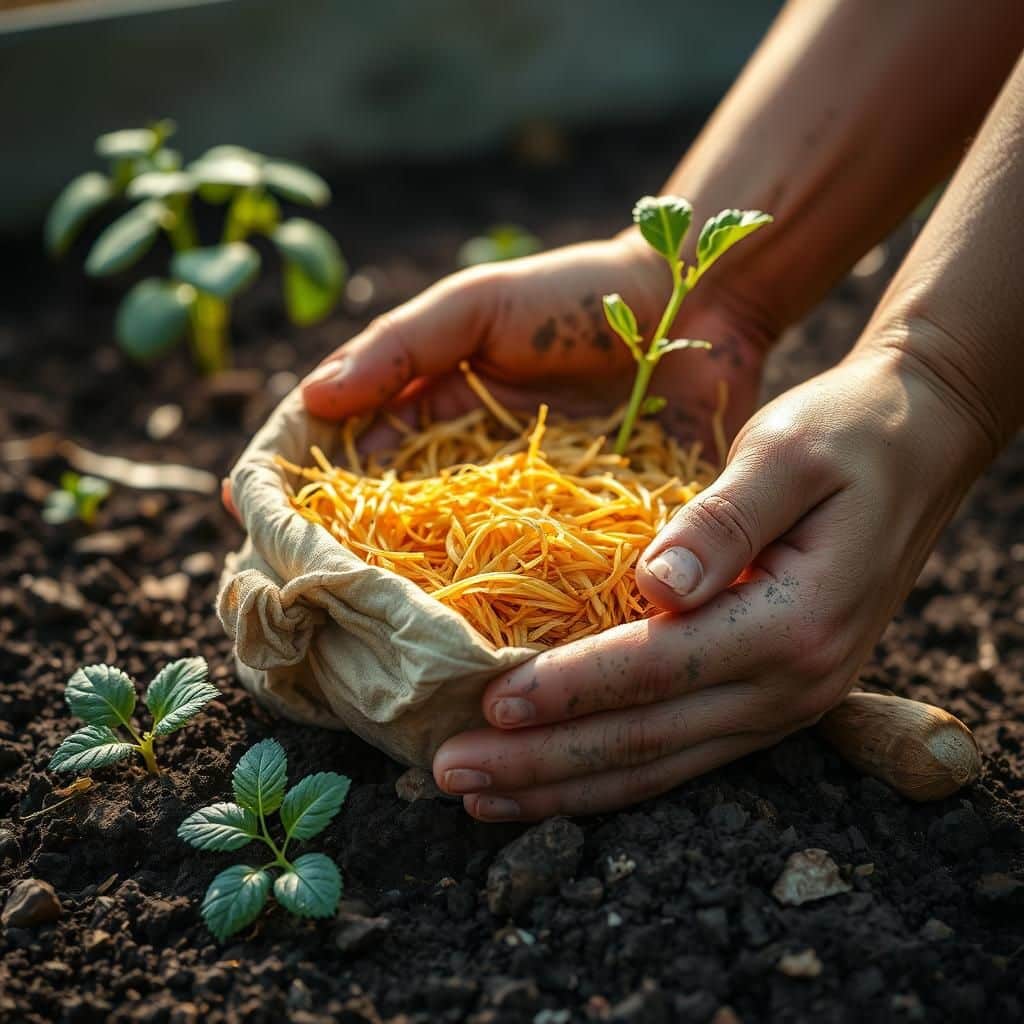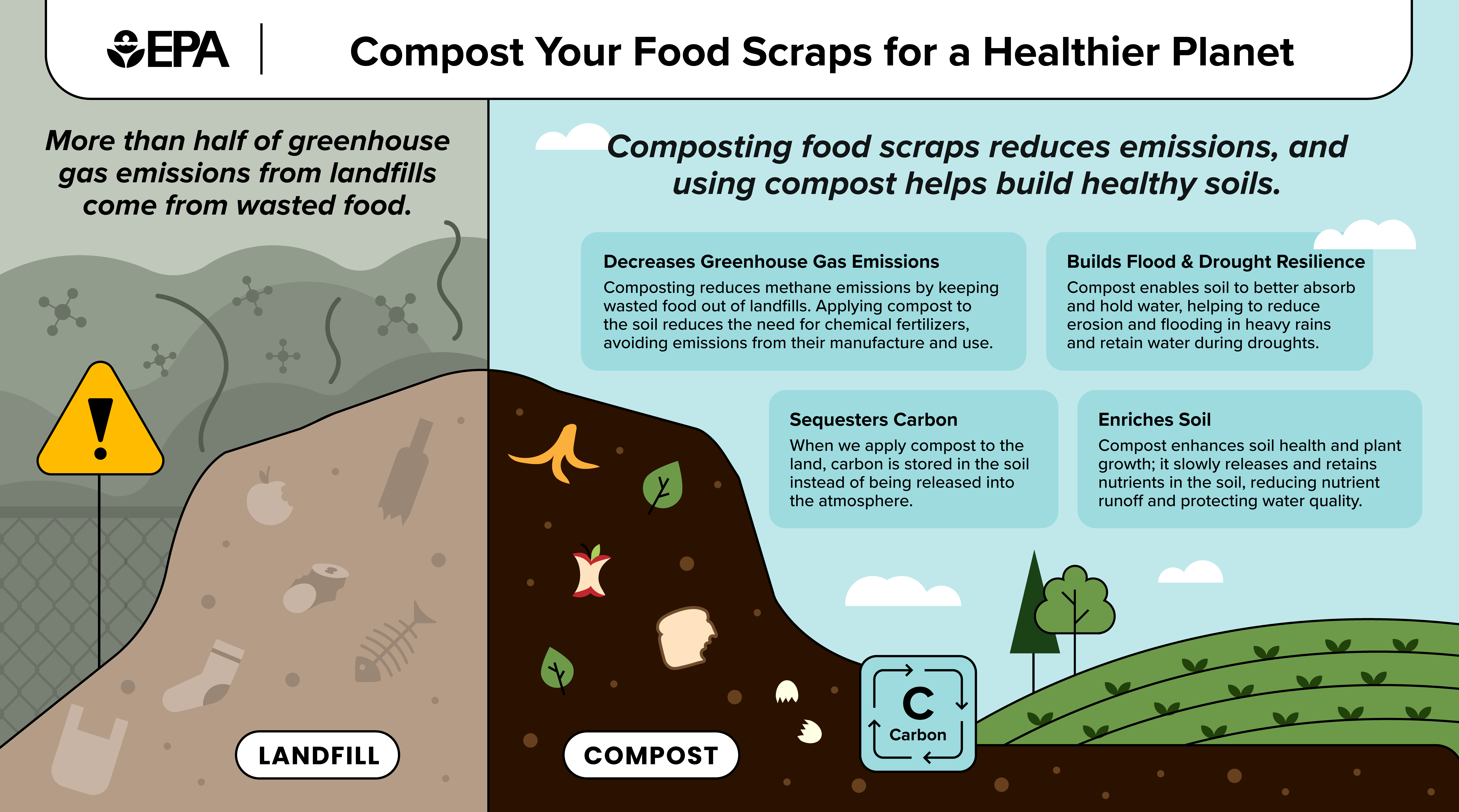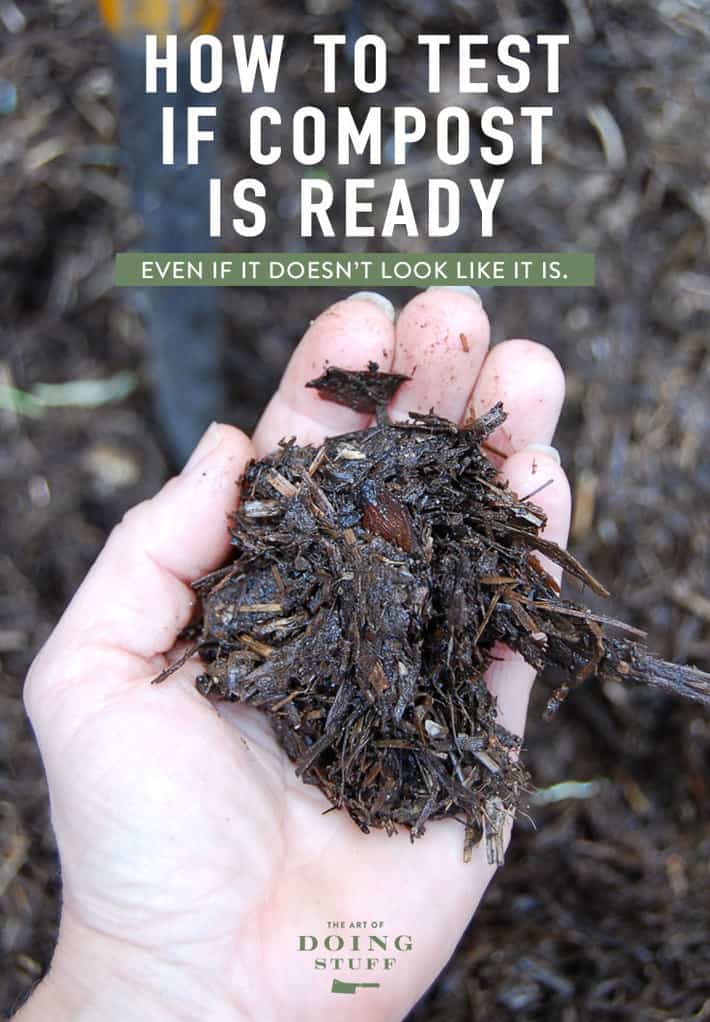How Long Until Compost Turns to Soil? A Comprehensive Guide to Speed Up the Process

Composting is an eco-friendly practice that transforms organic waste into valuable nutrient-rich soil. However, many gardeners and compost enthusiasts often wonder, How long does it take for compost to turn into usable soil? The duration of this transformation can vary based on several factors, including the composting method, materials used, and environmental conditions. In this comprehensive guide, we will explore the essential components that influence the composting timeline and provide practical tips to accelerate the process. By understanding these dynamics, you can enhance your gardening efforts and contribute to sustainability in your community.
How Long Does It Take for Compost to Mature into Soil?
The time it takes for compost to transform into rich, usable soil can vary significantly depending on several factors, including the materials used, the method of composting, and the environmental conditions. Generally, composting can take anywhere from two months to two years to fully mature. Using the hot composting method, which involves actively managing temperature and moisture, can speed up the process to as little as four to six weeks. In contrast, cold composting, which relies on a more passive approach, may take a year or more. Proper aeration, moisture levels, and a balanced mix of green and brown materials are crucial for successful composting that accelerates the creation of nutrient-rich soil.
Factors Influencing Composting Time
The composition of the materials you put into your compost pile plays a crucial role in determining how long it takes for compost to become soil. A well-balanced mix of nitrogen-rich greens like kitchen scraps and carbon-rich browns such as dried leaves can enhance the breakdown process. Additionally, the size of the materials affects the speed at which they decompose; smaller pieces will break down faster than larger chunks. External conditions such as temperature, moisture, and aeration also critically influence the composting timeline.
Hot vs. Cold Composting
Hot composting is an active process where the pile is regularly turned and monitored for temperature and moisture, enabling it to reach higher internal temperatures that speed up decomposition. This method generally produces compost in about four to six weeks. Conversely, cold composting is a more passive approach where the pile is left undisturbed for a longer time, resulting in compost maturity in about six months to two years. Understanding the differences between these methods helps in selecting a suitable composting technique based on your needs and time frame.
Importance of Aeration
Aeration is a critical factor in composting that impacts the speed at which organic materials break down. Regularly turning the compost pile allows oxygen to enter, which is essential for the aerobic microbes that help decompose organic materials. When compost is adequately aerated, it can decompose more quickly, often within just a couple of months. Without sufficient aeration, compost can become compacted and potentially result in foul odors, extending the time required for it to transform into usable soil.
Moisture Levels in Composting
Maintaining appropriate moisture levels is vital for the composting process. The ideal moisture content is often compared to that of a damp sponge—wet but not waterlogged. If compost materials are too dry, microbial activity slows down, leading to a longer decomposition time. On the other hand, overly wet compost can become anaerobic, resulting in unpleasant odors and significantly delaying the maturation process. Regular monitoring and adjusting the moisture content can help achieve quicker compost transformation.
Types of Materials for Faster Composting
The selection of materials used in composting can significantly impact how quickly the compost becomes usable soil. Greens, such as fruit and vegetable scraps, add nitrogen, while browns, like shredded newspaper and straw, contribute carbon. For faster results, it is essential to achieve a balanced ratio, commonly recommended as three parts brown to one part green. Additionally, incorporating manure from herbivores or adding compost activators can accelerate microbial activity, leading to a quicker decomposition cycle.
| Composting Method | Timeframe |
|---|---|
| Hot Composting | 4-6 weeks |
| Cold Composting | 6 months - 2 years |
At what point does compost become soil?

Compost becomes soil through a process called humification, where the organic matter has been broken down and transformed by microorganisms, resulting in a nutrient-rich substance that resembles soil. Typically, this transformation occurs over several months to a couple of years, depending on various factors such as temperature, moisture, and the types of materials being composted. When compost reaches a dark, crumbly texture and has an earthy smell, it is a sign that it has matured and is edging closer to becoming soil.
The Process of Decomposition
The initial step in turning compost into soil involves the decomposition of organic materials. During decomposition, microorganisms break down the raw materials, which include kitchen scraps and yard waste, converting them into simpler substances. This process can be broken down into several stages:
See also:
- Mesophilic Phase: In this initial phase, moderate temperature-loving microbes proliferate.
- Thermophilic Phase: At this stage, temperatures rise, promoting the growth of heat-loving organisms that further break down materials.
- Curing Phase: The final phase involves cooling and stabilizing, where the compost matures and nutrients become available.
Characteristics of Mature Compost
Mature compost possesses distinctive characteristics that indicate readiness for use as soil. These attributes reflect the degree of decomposition and nutrient content:
- Texture: Mature compost is usually dark and crumbly, resembling rich soil.
- Odor: It has a pleasant, earthy smell, as opposed to the foul odors associated with immature compost.
- Nutrient Content: It is rich in essential nutrients and beneficial microorganisms, making it ideal for gardening and soil health.
Factors That Influence Compost Maturity
Several factors can affect how quickly compost becomes soil. Understanding these factors can help optimize the composting process:
- Material Composition: The types of organic materials used can speed up or slow down decomposition.
- Moisture Levels: Proper moisture is critical; too little hinders microbial activity, while too much can lead to anaerobic conditions.
- Aeration: Providing adequate oxygen through turning or agitation promotes the growth of aerobic microbes.
How to Test if Compost is Ready
To determine if compost has matured into a form that is close to soil, several tests can be conducted:
- Visual Inspection: Look for a dark, crumbly texture and absence of recognizable materials.
- Smell Test: A sweet, earthy aroma indicates that the compost is ready.
- Temperature Check: If the compost is at ambient temperature and no heat is being generated, it is likely finished.
Using Compost as Soil Amendments
Once compost has matured, it can be effectively used to improve soil health and structure. Its application offers numerous benefits:
- Enhances Soil Structure: Compost improves soil aeration and water retention capabilities.
- Provides Nutrients: It enriches the soil with essential nutrients required for plant growth.
- Supports Microbial Life: Compost fosters a healthy ecosystem of microorganisms that promote soil health.
How long should you let compost sit before planting?
To determine how long you should let compost sit before planting, it is essential to consider several factors including the type of compost, the materials used, and the specific plants you wish to cultivate. Generally, fully composted material is ready to be used after it has gone through the decomposition process, typically taking 3 to 6 months when managed correctly. Here are some aspects to keep in mind:
Stages of Composting
The process of composting occurs in stages, each with differing timelines. Understanding these stages can help you decide when the compost is ready for use:
- Active Phase: This initial phase lasts about 2 to 3 months, where microorganisms break down organic materials rapidly.
- Cooling Phase: After the active phase, the compost may cool down as biological activity decreases; this phase lasts for about 2 to 4 weeks.
- Maturation Phase: Finally, the compost needs an additional 1 to 3 months to mature, allowing for mineralization and stabilization.
Signs of Ready Compost
It is crucial to look for specific indicators that your compost is ready for planting. These signs signal that the compost has matured appropriately and is safe to use:
- Dark Color: Finished compost typically has a dark, brown color, indicating decomposition has successfully occurred.
- Earthy Smell: A pleasant, earthy aroma suggests healthy compost, while a foul smell indicates further decomposition is needed.
- Texture: Well-composted material should crumble easily and feel like rich soil, not contain recognizable bits of the original materials.
Type of Plants and Compost
Different plants have varying nutrient needs, which can influence how long compost should sit before being mixed into the soil. Here’s what to consider:
- Vegetables: Most vegetable plants benefit from compost that has matured for 3 to 4 months to ensure nutrient availability.
- Flowers: Flowering plants may thrive with compost that has been allowed to sit for about 2 to 3 months, depending on specific needs.
- Trees and Shrubs: Larger plants like trees and shrubs often require compost that has aged for at least 6 months for optimal results.
Factors Affecting Compost Maturation
Several factors can affect how long compost should be left to sit, impacting the readiness for planting:
See also:
- Material Composition: The mix of materials in your compost pile can accelerate or slow down decomposition; high-nitrogen materials will decompose faster.
- Moisture Levels: Maintaining adequate moisture promotes microbial activity, essential for speeding up the composting process.
- Temperature: Higher temperatures can increase decomposition rate, while lower temperatures may prolong the process; aim for 130°F to 160°F during active composting.
Using Compost Before it's Fully Ready
While it is advisable to wait until compost is fully matured, some gardeners may choose to utilize partially decomposed compost. However, there are variables to consider:
- Nutrient Availability: Using compost that is not fully decomposed may lead to unbalanced nutrients, which can negatively impact plant growth.
- Potential Weeds: Immature compost may still contain seeds from the original material, resulting in weed growth in the garden.
- Soil Structure: Unfinished compost can affect soil structure unfavorably, making it too rich in organic matter without proper stabilization.
Why isn't my compost turning into soil?

Compost is an essential process for creating nutrient-rich soil from organic materials, but there can be various reasons why your compost isn’t turning into quality soil. Some of these reasons may involve the balance of materials, moisture levels, or even the composting method being used. Understanding these factors will help you troubleshoot the situation effectively.
Improper Material Balance
Improper balance between green and brown materials is a common issue in composting. Green materials include nitrogen-rich items such as fruit scraps and grass clippings, while brown materials are carbon-rich elements like dried leaves and cardboard.
- Green materials: These should make up about 30% of your compost heap and help in providing the necessary nitrogen.
- Brown materials: A majority of approximately 70% should consist of these items to supply carbon.
- Compost ratio: Maintaining the ideal C:N (Carbon to Nitrogen) ratio of about 30:1 is crucial for effective composting.
Lack of Aeration
Aeration is crucial for composting. Without it, the compost pile may become compacted, restricting airflow, which can lead to anaerobic conditions.
- Turning the pile: Regularly turning your compost introduces oxygen, which promotes the growth of aerobic bacteria.
- Aeration methods: Consider using tools like aeration forks or adding wood chips to improve airflow.
- Compaction: Avoid walking on or compacting the pile, as this can significantly restrict airflow.
Inadequate Moisture Levels
Moisture is a critical factor for compost decomposition. Both too little and too much water can hinder the composting process.
- Moisture check: Your compost should feel like a damp sponge – not too wet or soggy.
- Watering: If it’s too dry, sprinkle water while turning the compost to achieve optimal moisture levels.
- Drainage: Ensure that your compost bin allows for adequate drainage to prevent water saturation.
Temperature Control
Temperature plays a significant role in composting efficiency. Compost piles can reach temperatures between 130°F and 160°F, which is ideal for killing pathogens and accelerating decomposition.
- Insulating your pile: Larger piles retain heat better; aim for a minimum size of 3x3x3 feet.
- Monitoring temperature: Use a compost thermometer to check the internal temperature of the pile regularly.
- Adding materials: If the temperature drops, add more green materials to raise the heat through microbial activity.
Pest and Pathogen Issues
Pests and pathogens can also affect the composting process. Unwanted visitors may disrupt the microbial balance necessary for efficient decomposition.
- Avoiding meat and dairy: These materials attract pests and can lead to odor problems and other issues.
- Maintaining health: Regularly monitor your compost for any signs of pests or pathogens.
- Covering the pile: Use a tarp or cover to minimize exposure to pests and excess moisture.
Questions from Our Readers
How long does it take for compost to turn into soil?
The time it takes for compost to turn into soil can vary significantly based on several factors, including the materials used, the composting method, and the environmental conditions. Typically, compost can take anywhere from three months to a year to decompose fully and become nutrient-rich soil.
What factors influence the speed of composting?
Several factors can influence the speed at which compost breaks down, including the moisture content, aeration, temperature, and the carbon-to-nitrogen ratio of the materials. Maintaining an optimal balance of these factors can accelerate the composting process.
See also:
Can I speed up the composting process?
Yes, you can speed up the composting process by turning the compost pile regularly to increase aeration, ensuring proper moisture levels, and adding materials such as manure or green waste that are high in nitrogen. These actions can help create ideal conditions for microorganisms to thrive.
Is finished compost the same as soil?
No, finished compost is not exactly the same as soil, but it can be incorporated into the soil to improve its fertility and structure. While compost enriches the soil with essential nutrients, it is more similar to organic matter than to traditional garden soil.

If you want to read more articles like How Long Until Compost Turns to Soil? A Comprehensive Guide to Speed Up the Process, we recommend you check out our Compost category.
Leave a Reply

Related Articles